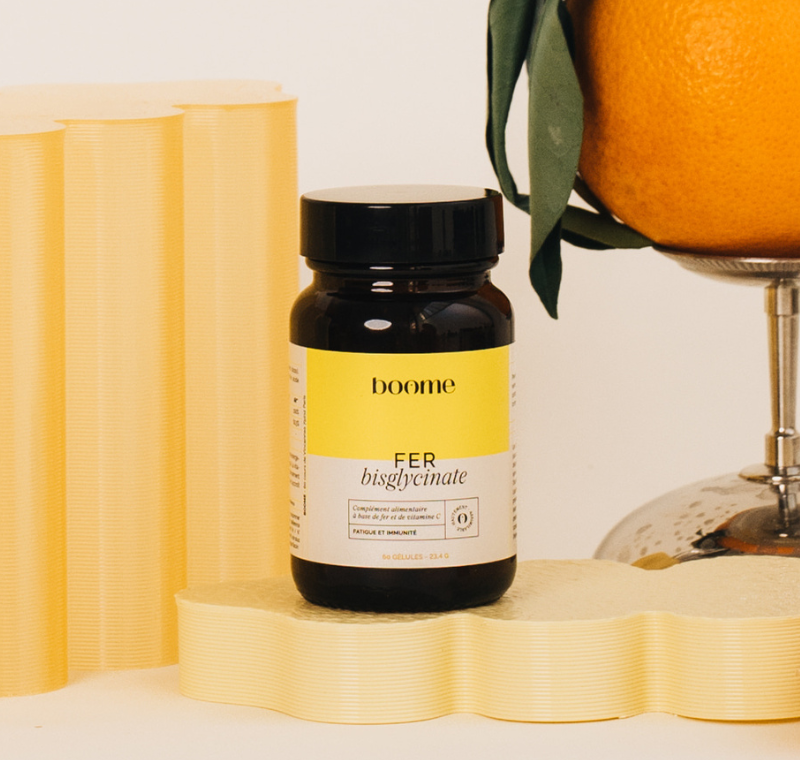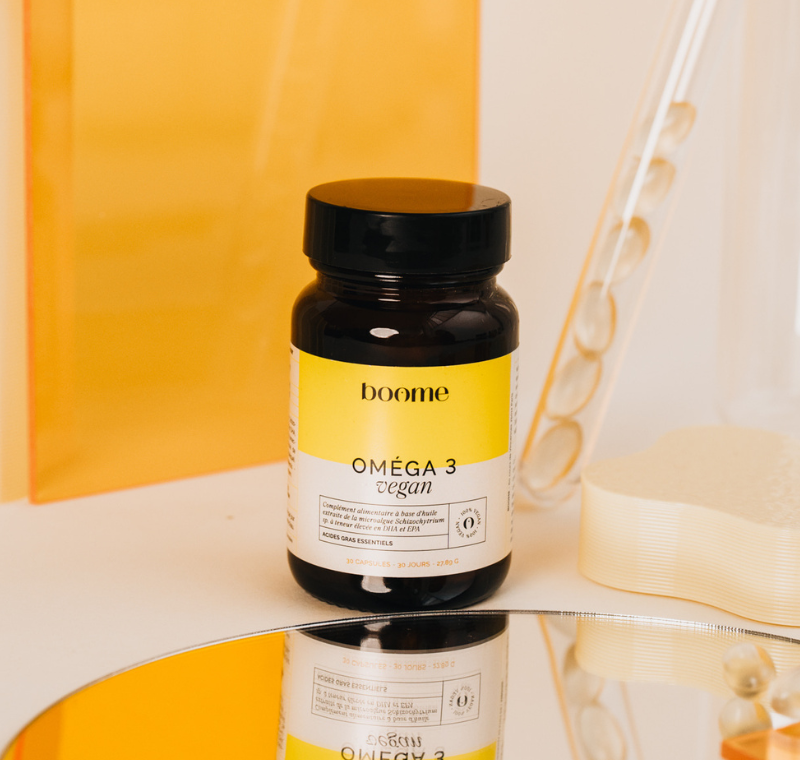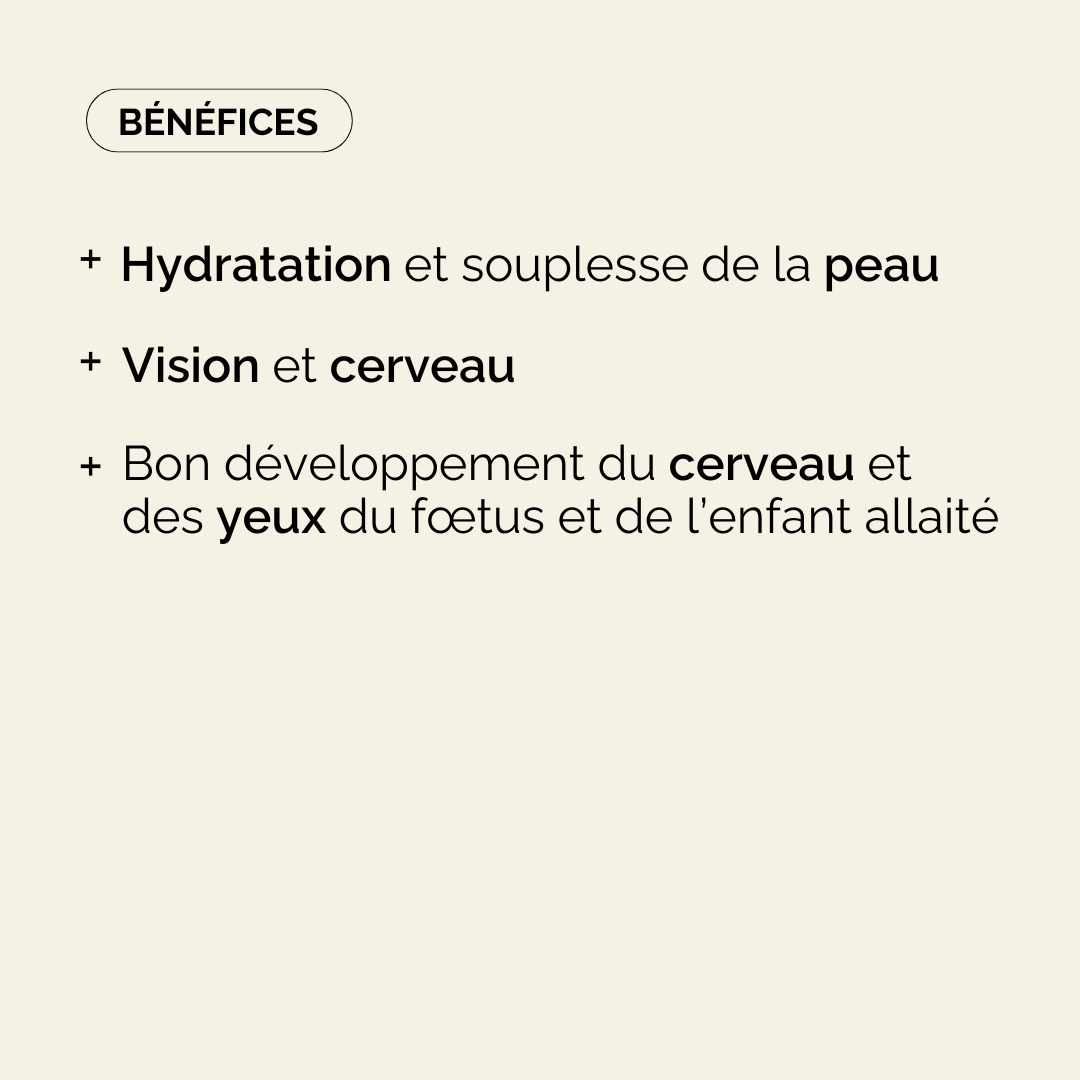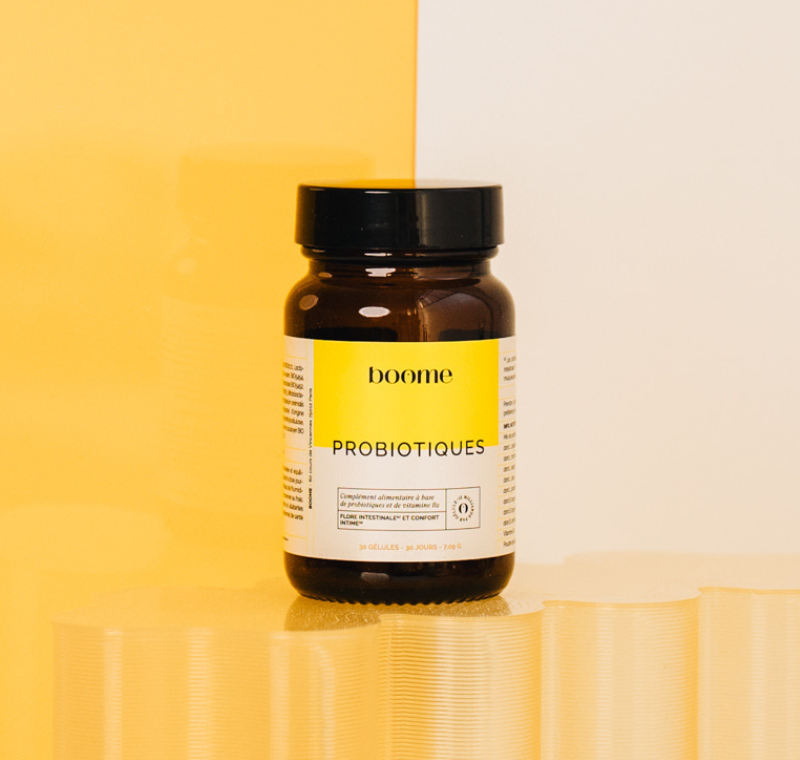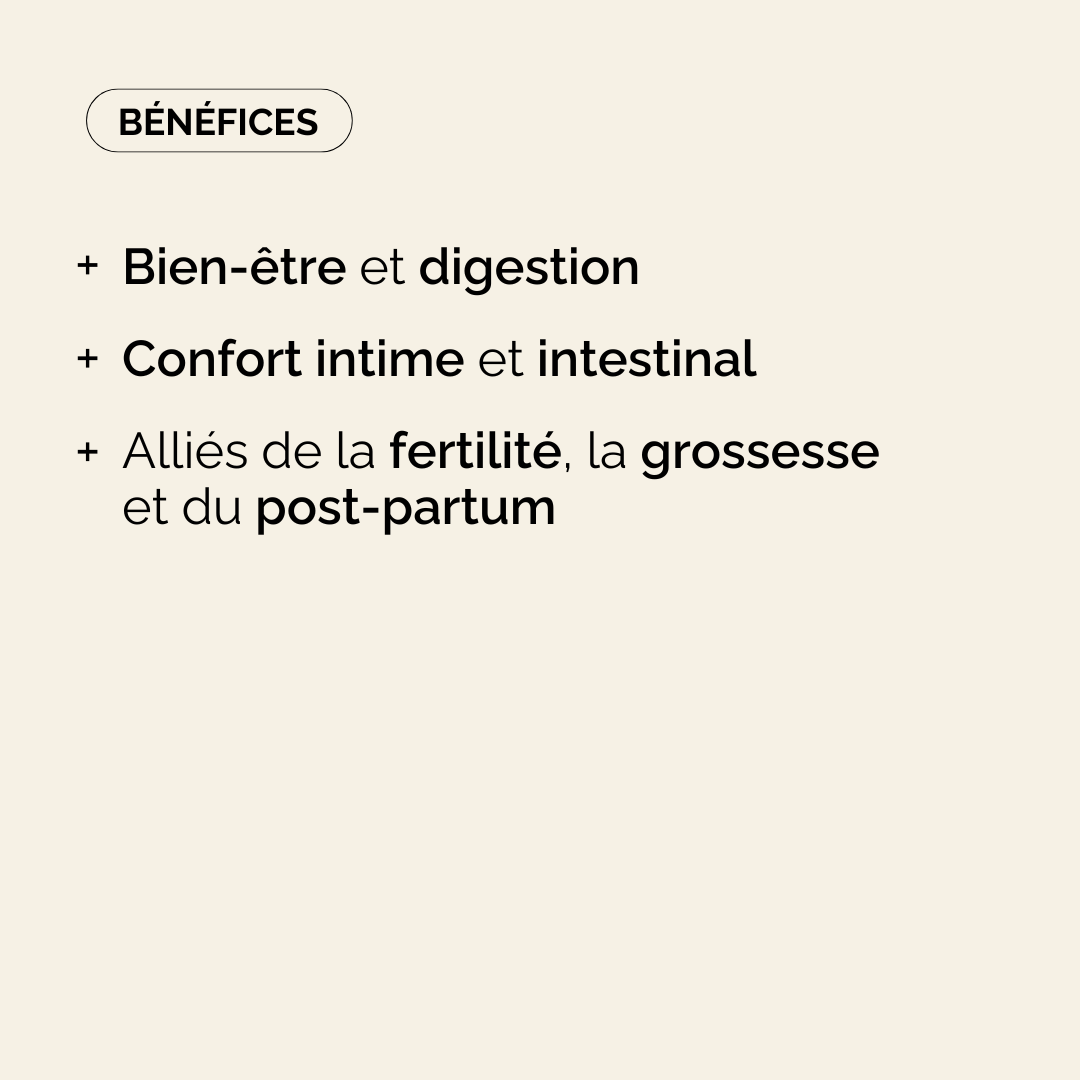
While pregnant women are often warned about their folic acid needs (or vitamin B9 , as we prefer to call it at Boome), they are less aware of the essential role choline plays during pregnancy. It's time to remedy this: learn everything about choline from A to Z!
What exactly is choline?
Of organic origin, choline is neither a vitamin nor a mineral salt, it is an amino acid derivative .
Its scientific name (hydroxy-2-ethyl-trimethylazanium) may not mean anything to you, but the origin of the word choline is more instructive: choline comes from the Greek kholê , which means bile, because the German chemist Adolph Strecker discovered it, then extracted it from a liver in 1868. Indeed, the human body can produce choline via the liver, but in very small quantities. It is therefore better to try to favor external sources, whether in food or food supplements.
Choline is essential for pregnant women, but it's not just for them. Several scientific studies have proven its many benefits for the human body. Choline contributes to good liver health, fights mental disorders (including anxiety and bipolar disorder), and promotes cognitive abilities.
Clinical studies are also underway to investigate the benefits of choline in preventing Alzheimer's disease. Choline is the precursor to acetylcholine, the neurotransmitter responsible for memory and learning, and it may help increase acetylcholine levels in the brain.
The benefits of choline during pregnancy
Long overlooked, the benefits of choline during pregnancy are now being praised by scientists, particularly in English-speaking countries where it is routinely prescribed. Like folic acid, it may help reduce the risk of neural tube defects (which will become the spinal cord and brainstem).
Reduced risk of neural tube defects and preeclampsia
Choline is necessary for placental development and fetal organ growth. It helps lower homocysteine levels (an intermediate amino acid in methionine metabolism) in the body. Excess homocysteine can lead to neural tube defects or congenital heart defects, which are thought to be due to improper development of the neural tube or heart.
Choline deficiency has also been linked to risks of preeclampsia, prematurity, and very low birth weight babies.

Achat express
Long-term cognitive benefits for your future child
At the nervous system level, choline is said to have cognitive and neuroprotective benefits because it helps maintain healthy DHA (a lipid family) levels in the body. DHA contributes to normal brain function as well as normal brain development in children during pregnancy and breastfeeding. DHA is also involved in the synthesis of certain neurotransmitters such as acetylcholine, which is an ally of our memory and proper nervous system function. Acetylcholine is not naturally present in food. Our bodies are forced to produce it and first need choline to do so.
Choline supplementation could therefore play a role in almost all areas of a child's cognitive functions : good cognitive development, ability to maintain sustained attention and memory.
Maintaining good liver function
In 2012, European health authorities (EFSA, European Food Safety Authority and the European Commission) considered that choline could contribute to the proper functioning of the liver.
Indeed, choline participates in lipid metabolism, by synthesizing the fatty substances found between cells. It thus actively contributes to detoxifying the liver, limiting fat accumulation and preventing cardiovascular diseases.
Observational studies have shown that choline deficiency may contribute to the development of non-alcoholic fatty liver disease (NASH), more commonly known as fatty liver disease.
Bonus: Choline is essential postpartum.
The choline requirement of breastfeeding women increases significantly. It has a direct impact on the proper development of your child's memory and learning abilities.
How to increase your choline intake?
Ideally, an intake of 450 mg per day is recommended during pregnancy and 550 mg per day during breastfeeding. Breastfeeding mothers have an even greater need for choline to meet the demands of their growing baby.
What foods are rich in choline?
> Eggs are the best source of choline , especially the yolk. However, be careful not to eat raw yolk during your pregnancy.
> The foods richest in choline are of animal origin but are not always suitable for pregnant women: therefore, rather than animal liver, choose chicken breast, white fish or beef.
> Choline can also be found in smaller amounts in wheat germ, soybeans, potatoes, cauliflower, broccoli, kidney beans, and quinoa.
Despite a balanced diet and these nutritional contributions, it is difficult to achieve the necessary dose of choline. It is therefore recommended to choose a suitable supplement that matches your needs. At Boome, we have chosen to include a patented form of choline, Cognizin® (CDP-Choline) , in our pregnancy vitamins . Cognizin® citicoline is synthesized via a patented natural fermentation process, guaranteeing stabilized and allergen-free citicoline. The effectiveness of Cognizin® citicoline in improving memory and intellectual performance has been clinically proven, in particular thanks to its neuro-protective and neuro-repair properties.
Choline: Finding the Right Balance Between Deficiency and Excess
As you know, it's important to stay healthy. While choline deficiencies can lead to risks, excessive intake can also have adverse effects. Consuming too much choline—more than 10g per day—can cause various symptoms such as nausea, diarrhea, and various gastrointestinal disorders, excessive sweating, and even bad body odor.
It should also be noted that choline supplementation is not recommended for people with depression or Parkinson's disease, to avoid possible worsening of symptoms .
If you have any doubts about a deficiency and before taking any supplements, we recommend that you speak directly with your healthcare professional who will be able to advise you and prescribe the necessary tests. In particular, he/she may prescribe tests to detect whether you are a carrier of the MTHFR gene mutation.




